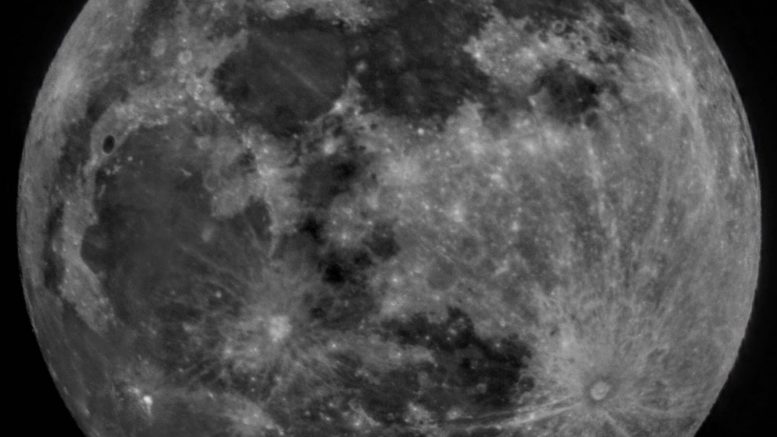Here is the list of Top 5 Unique Astronomical Events that are set to occur in 2021 that will be visible in the Pacific Northwest! There are some items that we have left off such as the annual solar eclipse if the event was not viewable in some area of the Pacific Northwest. Put these events on your calendar and get ready for some fun in 2021 as there are plenty of special astronomy events in 2021. The majority of these events are related to the moon, but this does not include some potential fun stuff from happening
1. Supermoons
In 2021, there will be 3 months in which their full moons could be considered supermoons. Those dates are shown in the table below with each supermen being in the spring. For more information about what qualifies as a supermoon, check out our article.
- April 26 – Occurring at 7:33 PM Pacific Time, this full moon is the first of three super moons in 2021. The April Moon is called the Full Pink Moon, although the moon won’t be the color pink, but was known for the color of the moss. The moon won’t be visible until 8pm PT and will remain low on the eastern horizon.
- May 26 – Occurring at 4:14AM Pacific Time, the second of three 2021 super moons is also the same time as the lunar eclipse. We go into some detail about viewing the lunar eclipse, but the moon will be low on the southern horizon. This moon is known as the Full Flower Moon because this was the time of year when spring flowers appeared in abundance.
- June 24 – This is the third of the three 2021 super moons, but will unfortunately not be visible for the Pacific Northwest. Fully illuminated at 11:40 AM Pacfic time, the moon will be below the horizon. Known as the Full Strawberry Moon, this full moon would typically signal the time of year to gather ripening fruit.
2. Lunar Eclipse May 26
In addition to being a Supermoon on May 26th, the night of May 26th will also see a total lunar eclipse, which will be visible for the Western parts of North America, which includes the Pacific Northwest. The best time to see this event would be at 4:15am. During this process, the moon will gradually get darker and then take on a rusty or blood red color. For more information on lunar eclipses, check out our articles here. The location of the moon will be low on the South-Western horizon.
| Datapoint | Time |
| Duration: | 3 hours, 51 minutes |
| Duration of totality: | 14 minutes, 28 seconds |
| Penumbral begins: | May 26, 2021 at 1:47:39 am |
| Partial begins: | May 26, 2021 at 2:44:58 am |
| Full begins: | May 26, 2021 at 4:11:26 am |
| Maximum: | May 26, 2021 at 4:18:42 am |
| Full ends: | May 26, 2021 at 4:25:54 am |
https://eclipse.gsfc.nasa.gov/LEplot/LEplot2001/LE2021May26T.pdf
3. Full Moon, Blue Moon on August 22
On August 22nd, the Moon will be located on the opposite side of the Earth as the Sun and its face will be will be fully illuminated. The moon will be fully illuminated at 4:02 AM Pacific Time, which was known by early Native American tribes as the Full Sturgeon Moon because the large sturgeon fish of the Great Lakes and other major lakes were more easily caught at this time of year. But since full moons occur every 29.53 days, occasionally a season will contain 4 full moons. For more information about the Full Sturgeon Moon, check out our article. The extra full moon of the season is known as a blue moon. Blue moons occur on average once every 2.7 years.
4. November 18–19, 2021 Partial Lunar Eclipse
- Magnitude: 0.9742
- Duration: 6 hours +
- Penumbral begins: Nov 18, 2021 at 10:02:09 pm
- Partial begins: Nov 18, 2021 at 11:18:42 pm
- Maximum: Nov 19, 2021 at 1:02:55 am
- Partial ends: Nov 19, 2021 at 2:47:04 am
- Penumbral ends:Nov 19, 2021 at 4:03:40 am
Data courtesy of https://www.timeanddate.com/eclipse/lunar/2021-november-19
This Partial Lunar Eclipse will basically be overhead for the majority of the Pacific Northwest in the Southern part of the sky. The moon will be red in color from 11:18 pm on November 18th to 2:47am on November 19th. This will definitely be a great opportunity to view the moon assuming that the weather holds up.
Come join your fellow space enthusiasts, regardless of age and skill, and celebrate the exciting 2021 astronomy events coming to the Pacific Northwest!

Be the first to comment on "Top 4 Astronomical Events In 2021"